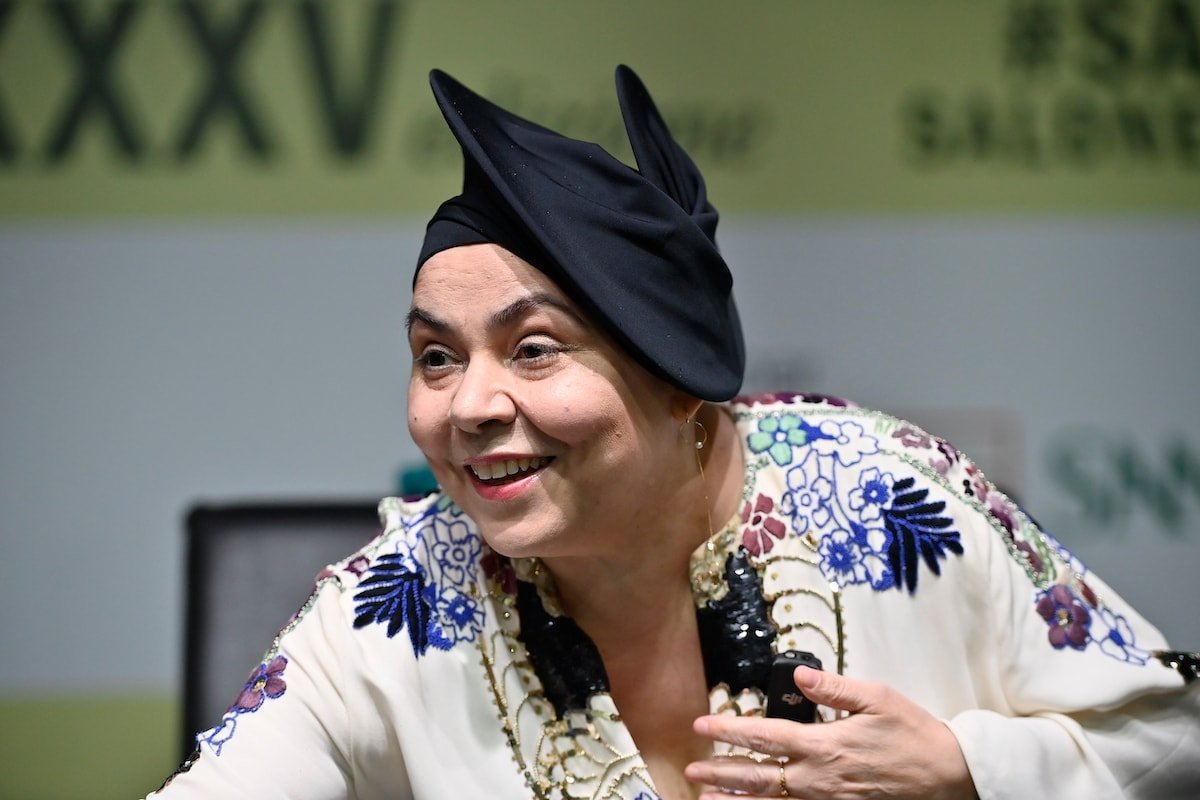Michela Murgia died at age 51 on August 10 of stage four cancer. In the last months of his life he lived in a large Roman house with all the members of his “hybrid and extended” family
“In the queer family There isn’t anyone alive who hasn’t heard the term bride/groom thrown around in recent years. After the disappointment of the non-Sardinians, the obvious won: the choice of love must remain primary, because in the so-called traditional family, emotions are linked to roles, while in the queer family the exact opposite happens: Roles are masks that emotions wear when and if needed, otherwise better never. The use of alternative linguistic categories enables inclusion, transcends the performance of legal titles, limits the dynamic of possession, multiplies the energies of love and makes them flow.’
As Michela Mourgialast May 12, he explained the meaning of “family,” “a queer family“, in fact, an umbrella definition that includes “all forms of relationships that go beyond the standard recognized by Italian law”. Three months later, Murgia, three of the most enlightened feminist and humanist intellectuals in Italy (and beyond) died at the age of 51 from stage four carcinoma with metastases to the brain, bones and lungs. The announcement of the illness had arrived in May, and the writer had predicted that the months she still had to live were few, but the news of her death still came as striking as a bolt of lightning and as devastating as a tornado. Above all because until the end he continued to fight for what he believed in, eh use words as surgical instrumentsto transfer it.
Speaking about her illness and its relentlessness, Murgia also wanted to talk about the meaning of family and show how her queer family supported her and stayed close to her in the last months of her life, thus bringing the spotlight. stereotypes and prejudices which still figure, granite, above the so-called “traditional” family, the only one legally recognized today. The only thing, then, that inherently brings with it rights. He did so by marrying, on July 15, Lorenzo Terenciactor, director and screenwriter met in 2017 at a theater performance and made it clear that “it’s not a party”, but a way to protect himself at such a complicated time in his life, because “the state will eventually want a legal name that makes decisions”.
The wedding with Lorenzo Terenzi
Murgia and Terenci got married”in articulo mortis“, an act done by people who are in danger for their lives, “because every day there is a different physical complication, I am in and out of the hospital and now we take nothing for granted. We did it reluctantly – he explained – if we had another way of guaranteeing each other’s rights, we would never resort to such a patriarchal and limited instrument, which forces us to limit a much richer and more powerful experience to the representation of the couple, where the number 2 is the opposite of who we are. So, no wishes because the ritual we would like does not exist yet. But it will exist and we want to help bring it to life. In a few days in the garden of the house that is still being moved, we will give life to our idea to celebrate the queer family.”
The “four soul children”
“I’m marrying a man, but it could have been a woman,” Murgia said of Terenzi, her life partner and queer family member. Neither with him nor with Manuel Persico, with whom she was married from 2010 to 2014, did she have biological children, but the author had children. Four, defined as “children of the soul”, who entered his life at different times, fundamental pieces of this extended, hybrid family, “founded in ius voluntatis, to the right of the will”, which transcends blood ties.
The “children of the soul,” a definition she coined herself in one of her best-known novels, “Accabadora,” are Rafael Luis, Francesco Leone, Michele Anghileri And Alessandro Giamei. Raphael Luis is the youngest, 21, who entered his life at the age of 9: with Raphael’s mother, Claudia, an architect, Murgia lived until his death in the large house in Rome, forming a couple with the same parents. Then there’s Leone, an opera singer, Giammei, a Yale professor, and Anghileri, an activist.
The other queer family members
Also part of the family were other people who brought love and affection beyond conventional circumstances to Murgia’s life: the women writers Chiara Taliaferri (co-creator of the iconic podcast Morganawhich later became a book), Chiara Valerio And Teresa Ciabatiit’s still Roberto Saviano and the lawyer Cathy La Torre.
“I don’t consider myself a bride – the author explained again on July 22, saying how Maria Grazia Chiuri wanted to design the wedding dress. rights that there was no other way to obtain so quickly. We know we used a privilege: mortgage, adoptions, tax exemptions, these are all things that, if we asked for them now, would be granted to us as two and as male and female, but for this we had to resort to the instrument of the heterosexual binary as a natural relational norm, that is, to what we have always fought.”
“I would like to make our experience political to show that we have found another way to be together – he concluded – a way that the government would like to reduce to a social oddity to be prosecuted and instead is already the normal life of many people.”

